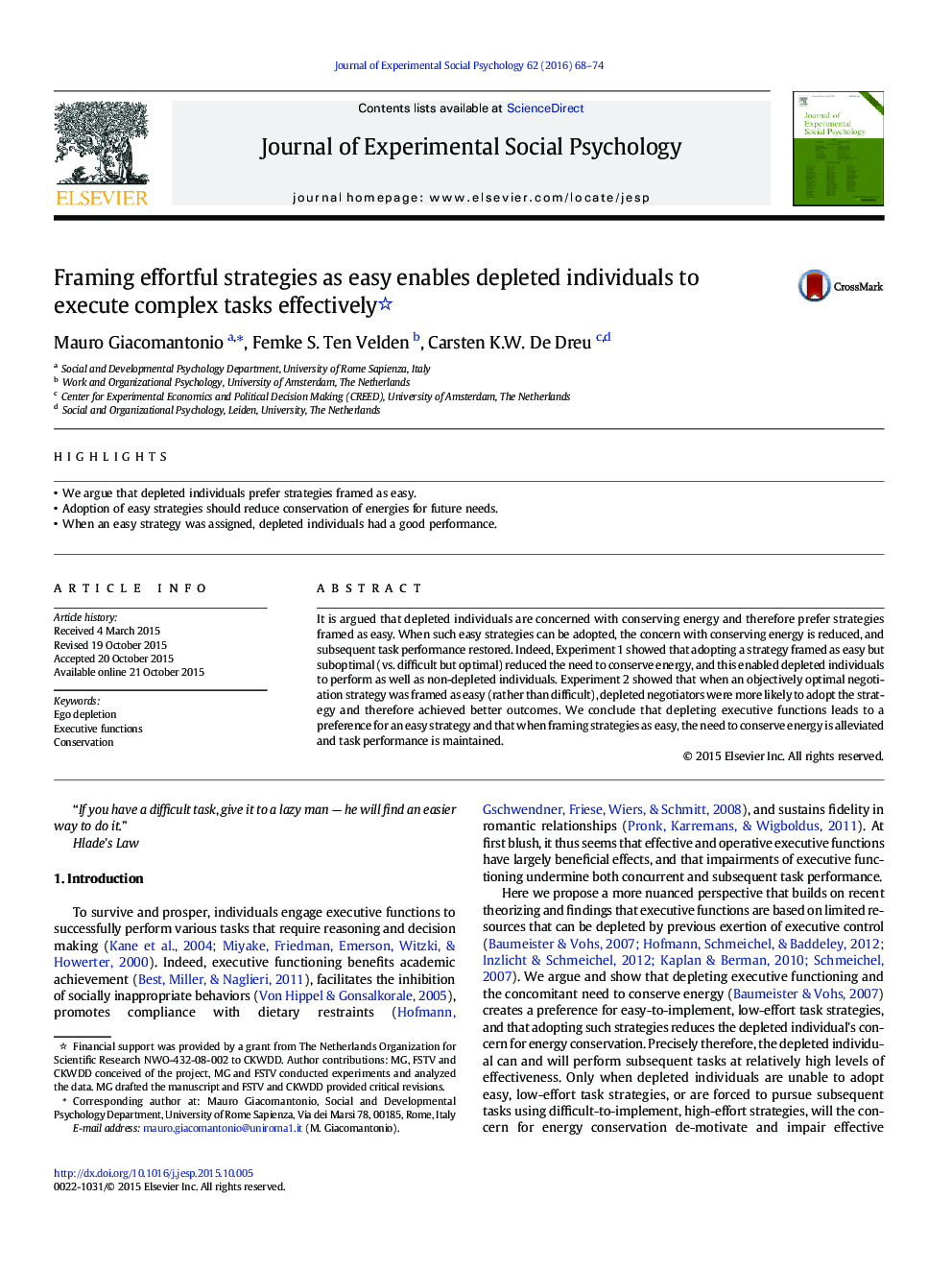| Article ID | Journal | Published Year | Pages | File Type |
|---|---|---|---|---|
| 947682 | Journal of Experimental Social Psychology | 2016 | 7 Pages |
•We argue that depleted individuals prefer strategies framed as easy.•Adoption of easy strategies should reduce conservation of energies for future needs.•When an easy strategy was assigned, depleted individuals had a good performance.
It is argued that depleted individuals are concerned with conserving energy and therefore prefer strategies framed as easy. When such easy strategies can be adopted, the concern with conserving energy is reduced, and subsequent task performance restored. Indeed, Experiment 1 showed that adopting a strategy framed as easy but suboptimal (vs. difficult but optimal) reduced the need to conserve energy, and this enabled depleted individuals to perform as well as non-depleted individuals. Experiment 2 showed that when an objectively optimal negotiation strategy was framed as easy (rather than difficult), depleted negotiators were more likely to adopt the strategy and therefore achieved better outcomes. We conclude that depleting executive functions leads to a preference for an easy strategy and that when framing strategies as easy, the need to conserve energy is alleviated and task performance is maintained.
